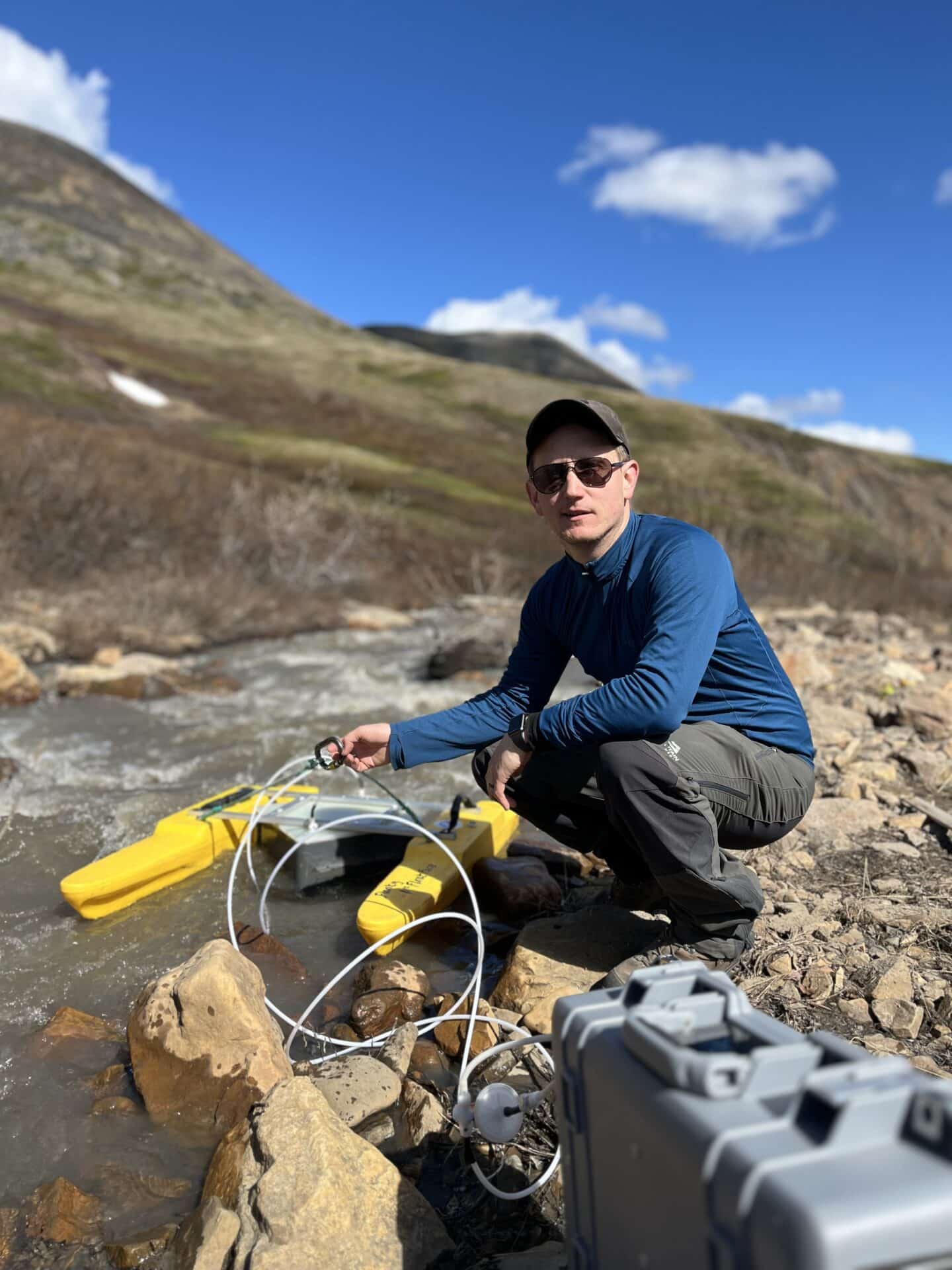Our People
Professor Robert (Bob) Hilton

Professor Robert (Bob) Hilton
- Fellow and Tutor in Earth Sciences
- Professor of Sedimentary Geology
Pronouns: (He/Him)
I first encountered Earth Sciences as an undergraduate in Natural Sciences at the University of Cambridge, and I became rapidly hooked. I was drawn to the breadth of themes, calling for input from across the sciences to explain how the Earth works, taking us from the centre of the core, to the oceans, landscapes, the biosphere and atmosphere. It seeks to explain key events in Earth’s past (e.g., the evolution of life, trends and drivers in climate, the formation of mountain ranges and how they changed the chemistry of the oceans and atmosphere), while also being essential to understand how humans have perturbed natural systems (and what we might be able to do about it).
I went on to do a PhD in Earth Sciences, specialising in geochemistry and geomorphology, and a postdoctoral research position at L’Institut de Physique du Globe, Paris. I then spent 12 years at Durham University, as a Lecturer, Reader and Professor in Geography. I joined St Peter’s in 2021 as Tutor in Earth Sciences and Professor in Sedimentary Geology.
Teaching
I teach across the year groups in Earth Sciences on themes of sedimentary processes, weathering and erosion, and biogeochemical cycles (e.g., carbon cycle). I’m really passionate about research-led teaching, where you as a student get a chance to think deeply about questions, and conduct your own research (under supervision) as a way to learn.
Often, as you progress towards third and fourth year, you will find this takes you to the boundaries of our current knowledge. In lectures, practicals and fieldtrips, I build this ethos into exercises that use real datasets, or gather new observations or measurements. Having benefitted from small group teaching during my undergraduate degree, in tutorials I really enjoy the interactions and discussions around a task or theme, and the different ways we can approach a question or challenge.
Research
My research focuses on the carbon cycle, and how erosion and weathering processes act to exchange carbon between the atmosphere (as a greenhouse gas, CO2) and rocks, where it can act as a long term store of carbon. To do this we have to consider both removal of CO2 from the atmosphere (e.g., when soil and plants are eroded and washed into rivers, and carried to the oceans and sediments) and a release of CO2 from rocks (when organic carbon rocks is chemically altered – a “geo-respiration”).
We’ve developed new approaches to measure these fluxes, mostly focused on geochemical methods that track carbon (or reaction products) in soils and rivers, and I’ve applied these to modern river basins (e.g., in the French Alps, and the Mackenzie River Basin, Canada). A recent research highlight was uncovering a link between temperature and CO2 release from the weathering sedimentary rocks – when the rocks warm, CO2 release increases – and we’re now trying to understand why this happens, and how widespread the feature is.
I’ve led a number of projects that have sought to measure carbon fluxes funded by the UK Natural Environment Research Council and the European Research Council (Starting Grant 2015 and Consolidator Grant 2020). My research is strongly collaborative, and I work with other scientists around the world.
I’m also passionate about training the next Earth scientists, and have supervised a number of masters and PhD students, and mentored several postdoctoral research associates and fellows. I’ve been fortunate enough to be recognised for my research in international awards – the 2019 Leverhulme Prize, a Finalist in Chemistry of the 2018 Blavatnik Awards, the 2016 Chinese Academy Sciences International Partnership Award for Young Scientists, and the 2014 Outstanding Young Scientist Award from the European Geosciences Union.
Selected publications
Zondervan, J.R., R.G., Hilton, et al. (2023) ‘Rock organic carbon oxidation CO2 release offsets silicate weathering sink’, Nature, 623, 329–333 (2023). https://doi.org/10.1038/s41586-023-06581-9
Hilton, R.G. (2023) ‘Earth’s Persistent Thermostat’, Science, 379, 329-330.
Soulet, G., R. G. Hilton, M. H. Garnett, T. Roylands, S. Klotz, T. Croissant, M. Dellinger, & C. Le Bouteiller (2021) 'Temperature control on CO2 emissions from the weathering of sedimentary rocks', Nature Geoscience, 665–671
Schwab, M., R. G. Hilton, P.A. Raymond, N. Haghipour, E. Amos, S.E. Tank, R. M. Holmes, E.T. Tipper, & T. I. Eglinton (2020) 'An abrupt aging of dissolved organic carbon in large Arctic Rivers', Geophysical Research Letters, 47, e2020GL088823
Hilton, R. G., & A. J. West (2020) 'Mountains, erosion and the carbon cycle', Nature Reviews Earth & Environment, 1, 284-299
College will be closed to the public over the Winter Vacation. Learn more here.